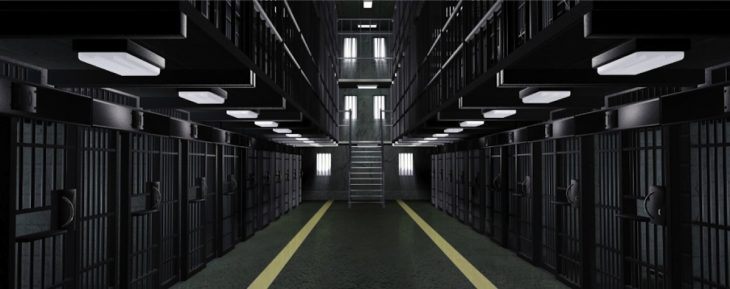Report: 1 in 11 Arkansas children has a parent who has been incarcerated
by April 25, 2016 4:02 pm 1,063 views

Nine percent of Arkansas children have had a parent in jail or prison during their childhood, says a new report from the Annie E. Casey Foundation.
The newly released report, “A Shared Sentence,” looked at figures from 2011-12. Sixty-one thousand Arkansas children have had a parent incarcerated at some point, it said. Nationally, 5.1 million children, or 7% of the population, have had a parent incarcerated.
The percentage of children with an incarcerated parent ranges from 3% in New Jersey to 13% in Kentucky. Other states with double digit totals were Indiana, with 11%, and Alaska, Michigan, New Mexico, Ohio, Oklahoma, and Tennessee, all with 10%.
The foundation works to improve opportunities for children. The report is a part of its KIDS COUNT project.
The report said that from 1980 to 2000, the amount of children nationally with an incarcerated father increased by 500%. Forty-five percent of incarcerated men age 24 or younger in state and federal prisons are fathers. Meanwhile, 48% of female federal inmates and 55% of female inmates in state facilities are mothers. The report said children with an incarcerated parent are usually younger minorities who are members of low-income families. African-American children are seven times more likely than white children to have a parent in prison.
The report said children of incarcerated parents face more disruptions than other children. It referenced a survey that found that 65% of families with an incarcerated member could not meet basic needs. Those children have an increased chance of having mental health issues and face lower expectations in school. The report referenced another study that found that the U.S. poverty rate would have fallen 20% instead of remaining steady had incarceration rates not increased.
“Incarceration breaks up families, the building blocks of our communities and nation,” the report said. “It creates an unstable environment for kids that can have lasting effects on their development and well-being. These challenges can reverberate and multiply in their often low-income neighborhoods, especially if they live in a community where a significant number of residents, particularly men, are in or returning from jail or prison. And different obstacles emerge once parents are released and try to assume their roles as caregivers, employees and neighbors.”
As part of its recommendations, the report cites Arkansas for its participation in the national Justice Reinvestment Initiative, which seeks a more cost-effective approach to justice. It notes Arkansas and other states have moved funds to community-based treatment programs and other reforms.
The report says the most important step would be reducing incarceration and considering shorter sentences and alternative sentencing for nonviolent crimes.
It recommends greater support for children while their parents are incarcerated, connecting newly released parents to employment pathways, and strengthening communities. It said employers should postpone asking about a previous criminal record until later in the hiring process.
